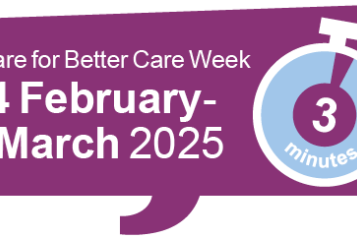Queen's Speech - What you need to know...

The Queen’s Speech today was delivered by Prince Charles instead due to HM Queen reportedly having mobility issues.
Some key things to be aware of in terms of the Government’s priorities (in relation to health and social care) for the next year are as follows:
-
The Health and Social Care Levy has now come into effect which raises £13bn a year (including the increase in dividend tax) and will “tackle the COVID-19 backlogs, reducing waiting times and delivering millions more scans, tests and operations, while reforming the way routine services are delivered so the NHS is fit for the future”.
-
Elective recovery - To support recovery of elective services, the Government plans to spend more than £8 billion from 2022-23 to 2024-25, supported by the revenue from the Health and Social Care Levy. This is in addition to the £2 billion Elective Recovery Fund and £700 million Targeted Investment Fund already made available last year to help drive up and protect elective activity.
-
Delivering Healthcare Priorities - The Government has committed to build 40 new hospitals by 2030, backed by an initial £3.7 billion. “Together with eight previously announced schemes, this will mean 48 hospitals delivered by the end of the decade, the biggest hospital building programme in a generation. The first of the 48 hospitals opened for patients last year and a further six are in construction. The new hospitals will transform the way we deliver healthcare infrastructure for the NHS, prioritising sustainability, digital technology and the latest construction methods”.
-
Social Care and Integration - In September 2021 the Government announced £5.4 billion for adult social care reform. This includes reforming the social care charging system to protect people in England from unlimited and unpredictable care costs. “From October 2023, we will end unpredictable costs by placing a £86,000 limit on the amount people anyone in England will have to spend on their personal care cost over their lifetime. The new cap will end the pain of unlimited care costs so that more people can preserve their savings and assets and pass something on to their loved ones”.
-
Implementation of the Government’s Integration White Paper will ensure patients receive better, more joined-up care. Building on the Health and Care Act 2022, it will bring the NHS and local government closer together to join up health and social care services through the design of a shared outcomes framework, with a single accountable person who will be responsible for the delivery of these shared outcomes including shared health and care plans for people locally.
-
-
Draft Mental Health Act Reform Bill - The purpose of the draft Bill is to a) Ensure patients suffering from mental health conditions have greater control over their treatment and receive the dignity and respect they deserve and b) Make it easier for people with learning disabilities and autism to be discharged from hospital. The main benefits of the draft Bill would be:
-
Modernising the Act so that it is fit for the 21st century and provides a framework for services in which people experiencing the most serious mental health conditions can receive more personalised care, with more choice and influence over their treatment and a greater focus on recovery.
-
Helping to address the existing disparities in the use of the Act for people from ethnic minority backgrounds – especially for detentions and for the use of Community Treatment Orders.
-
Ensuring that detentions only happen where strictly necessary.
-
Improving how we support offenders with acute mental health needs, ensuring they have access to the right treatment, in the right setting, at the right time – with faster transfers from prison to hospital, and new powers to discharge patients into the community while ensuring the public is protected.
-
-
The Women’s Health Strategy will focus both on priority healthcare issues for women across the course of their lives:
-
priority healthcare issues: menstrual health and gynaecological conditions; fertility, pregnancy, pregnancy loss and post-natal support; the menopause; healthy ageing and long-term conditions; mental health; and the health impacts of violence against women and girls; and
-
thematic priorities: women’s voices; healthcare policies and services; information and education; health in the workplace; and research evidence and data.
-
Further information can be found here.

